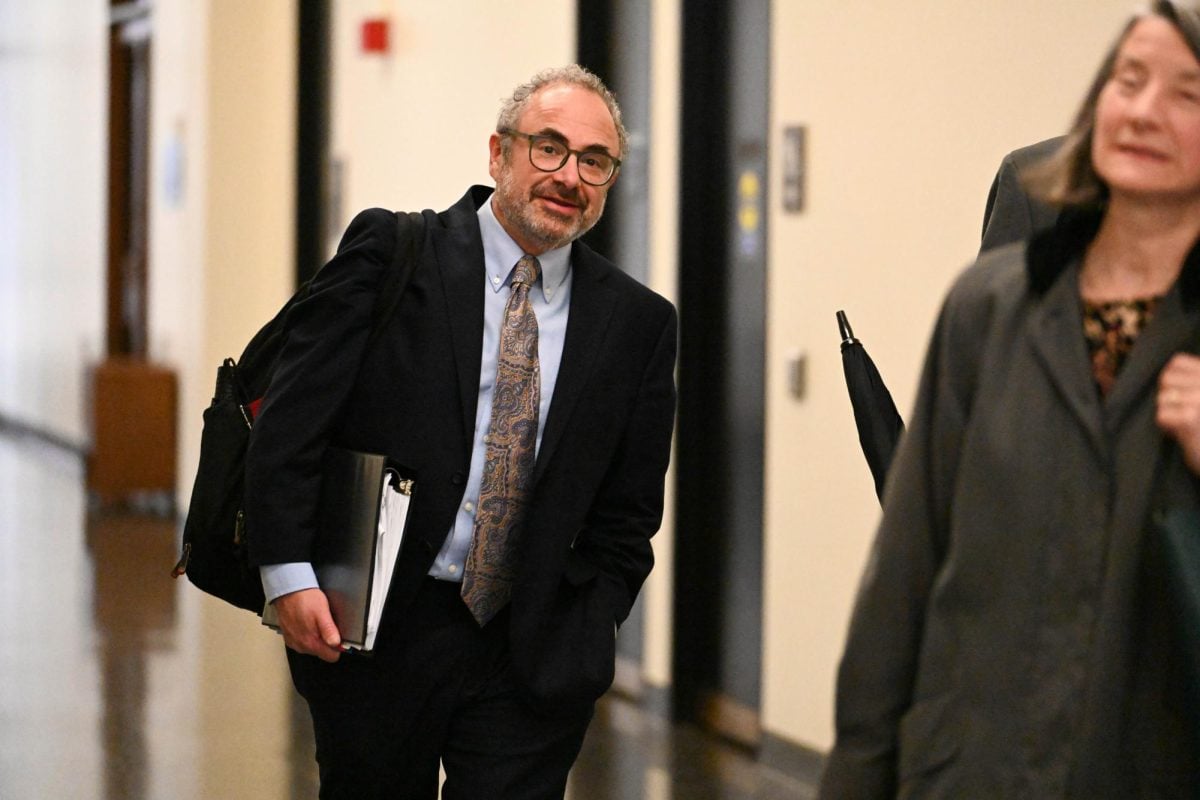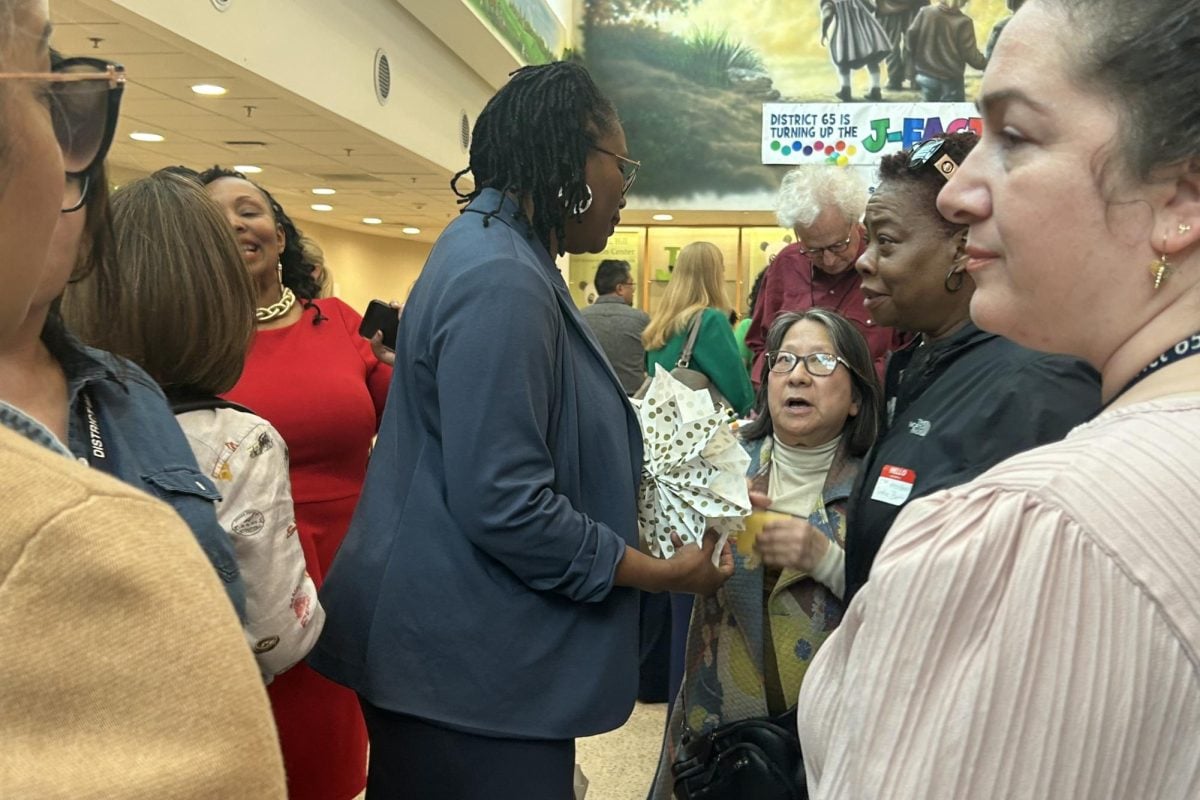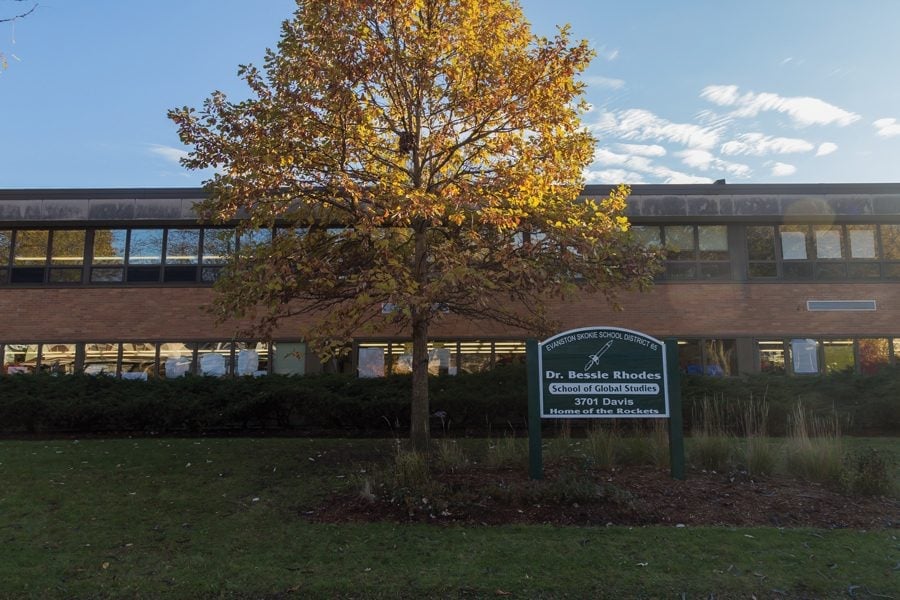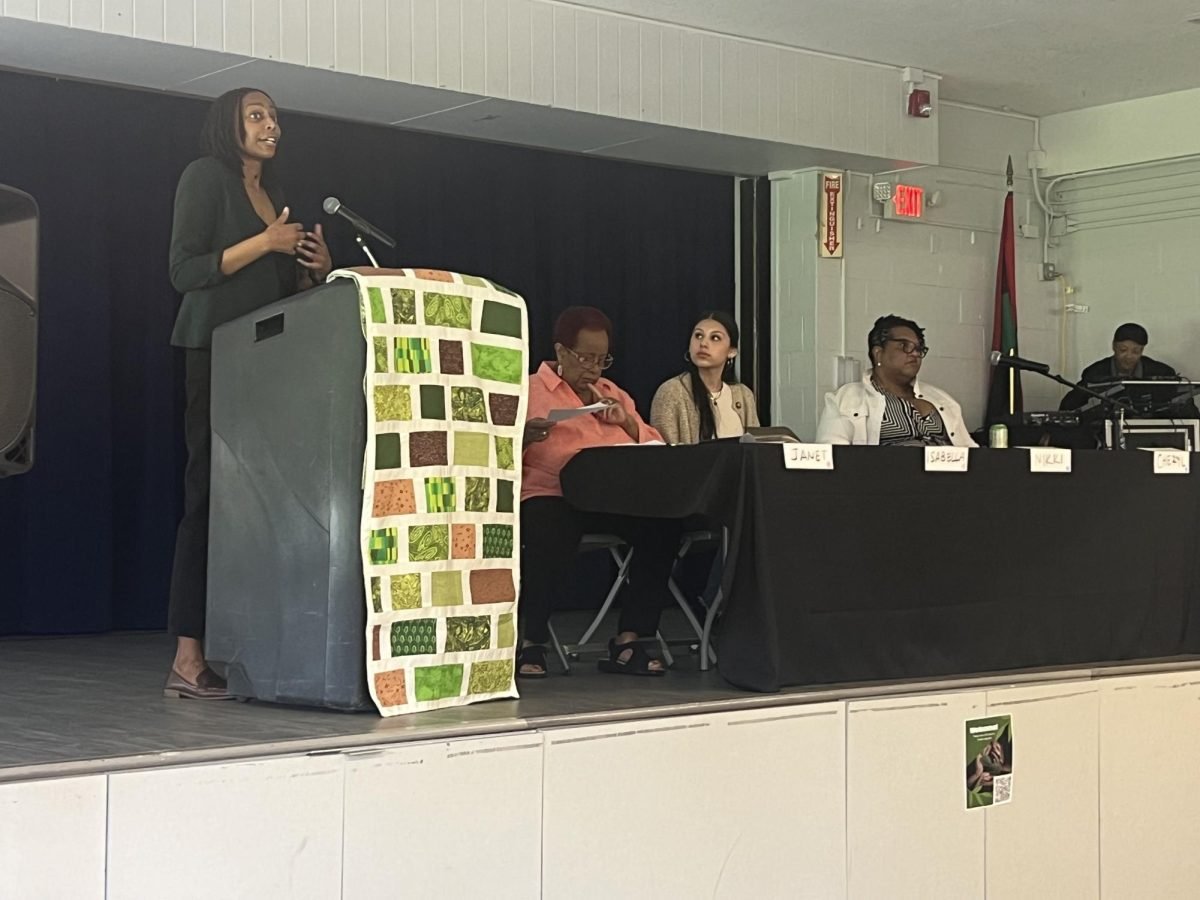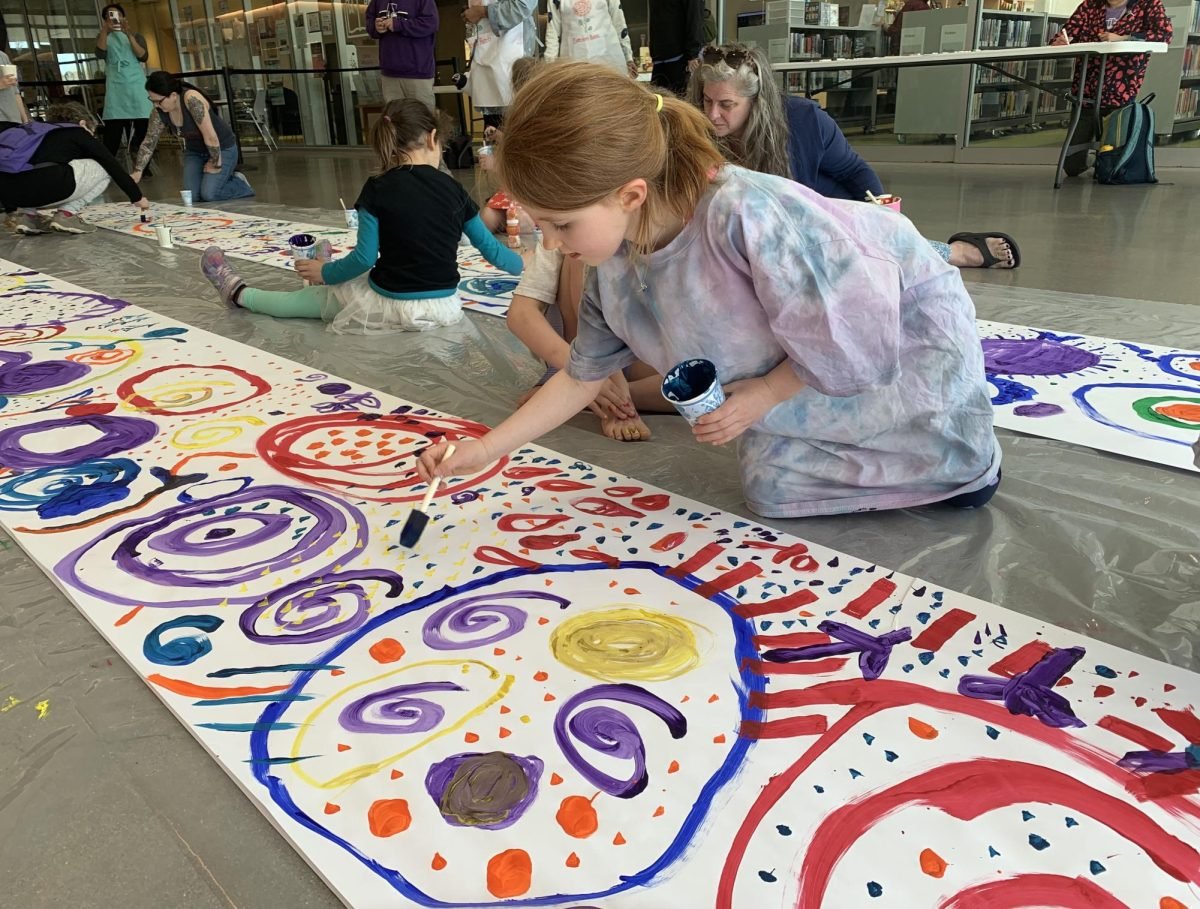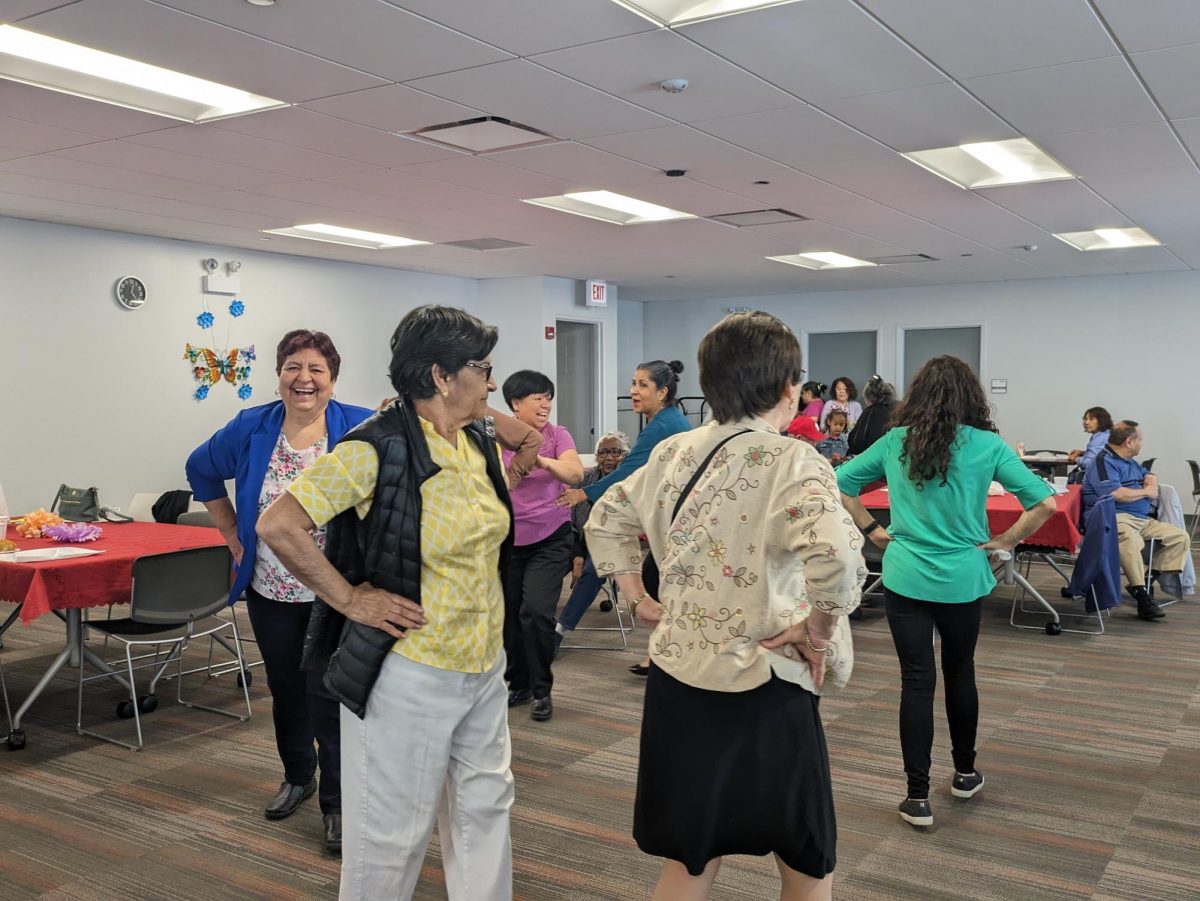African American studies Prof. Michelle Wright on Tuesday night discussed the meaning of “blackness,” kicking off a speaking series that brings Northwestern professors to the Evanston Public Library.
The series is in collaboration with the Alice Kaplan Institute for the Humanities program, focusing on black culture and heritage. About 80 people attended the event, including NU students and Evanston community members.
Wright began her lecture by saying there is no “one size fits all” definition of blackness.
“There is no one physical characteristic that defines blackness,” Wright said. “There’s no such thing as a black nose or black hair or a black build. … Blackness often brings in many different multivalent ethnic identities as well, so we don’t have any such thing as a pure blackness.”
Wright approached this issue from an historical perspective, discussing the influence of Isaac Newton and Albert Einstein on her own beliefs. Both introduced new concepts of time and space. Newton’s idea that time and space are linear shaped Wright’s beliefs on the “middle passage blackness” view of identifying blackness based on history, starting with slavery and moving on to the Civil Rights Movement and into the current era.
Wright said Einstein’s theory that time does not move in a uniform motion convinced her that blackness changes based on the individual and the moment.
Since 2007, Beverly Zeldin-Palmer, department assistant for the Kaplan Institute, has worked with EPL to organize programs centered around NU faculty speakers.
“The whole purpose of this series is to bring in the Evanston community,” Zeldin-Palmer said.
After Wright’s lecture, the professor answered audience questions about racial language, the different interpretations of blackness and the idea that the only common trait is humanity.
Lesley Williams, EPL head of adult services, said she also helped plan the event, hoping the library would not shy away from controversial topics.
“That’s kind of what the library is about is giving people a place to discuss difficult issues, and in an informed and a respectful way,” she said.
SESP sophomore Alexandria Bobbitt said she was struck by the “being versus doing” concept, an idea that blackness stems from the actions one takes, not who he or she is.
Bobbitt said she learned the simplest answer on race is not always the best.
“I think that’s a lot of the problem with talks about race, ethnicity and culture,” she said. “All these things that are so subjective and so broad, you have to open it up. You can’t narrow it in.”
Email: [email protected]
Twitter: @clwassink


